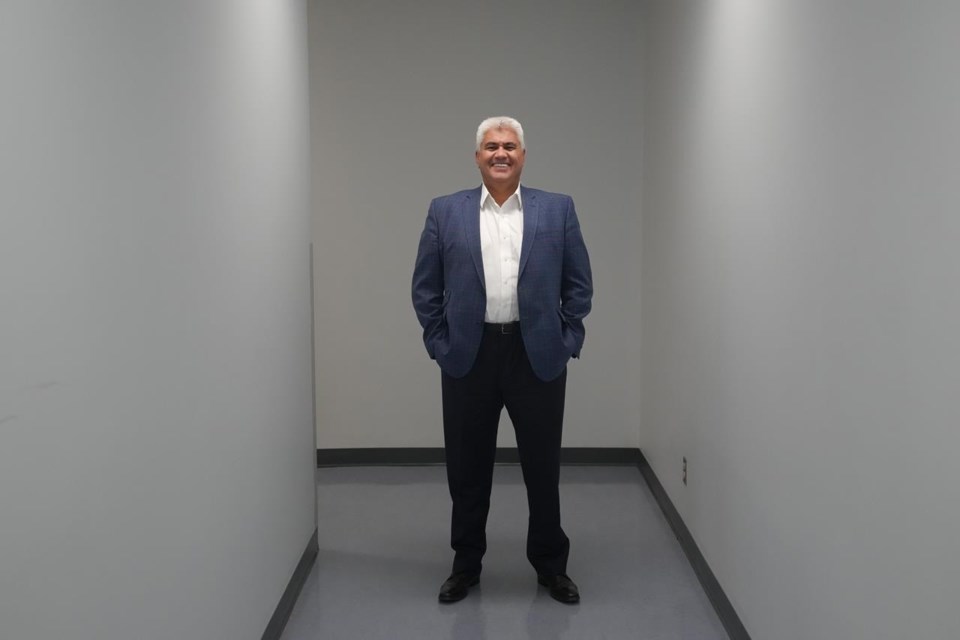THUNDER BAY, Ont. — Thunder Bay police Chief Darcy Fleury knows firsthand what it's like to experience racism – and that has helped guide his first few months on the job as he looks to overhaul the embattled police force and repair relations with the Indigenous community.
The Métis man took over the top job on the police force in May and has made one thing clear to his officers.
"Racism will not be tolerated and it will cost people their jobs," Fleury said in an interview with The Canadian Press.
Several damning reports in recent years, including an expert panel's findings this past spring, have found systemic racism within the Thunder Bay police force toward Indigenous people. The panel also found a "profound lack of trust" of the police by the Indigenous community.
Fleury, a veteran RCMP officer who rose through the ranks over the past few decades to a district commander in central Alberta, believes his Indigenous heritage will help him navigate the rough waters in Thunder Bay.
Fleury said С����Ƶ a target of racism, especially when he was younger, has informed how he identifies and addresses discrimination.
"If you've encountered it, you can tell in a heartbeat," Fleury said in the interview in late August.
"I'm not saying that I got some kind of crystal ball or magic wand that says, 'oh, that guy's a racist, that girl's a racist.' No. You can know through the conversations or the reactions or the interactions. You can tell."
So far, he hasn't found that yet within the force, he said. But he's cognizant that he's the boss and unlikely to be on the receiving end of racism from a subordinate.
Every front line officer wears a body camera, Fleury said. On a monthly basis, sergeants review body camera footage randomly chosen by software as part of an officer's overall review and supervisors also review video on a regular basis. And any complaint made to the professional standards division triggers a review of body camera footage.
"We haven't seen any cases on the body cam of anything overt," Fleury said, referring to racism.
Every officer also has to take anti-racism training as part of the force's reconciliation efforts. There are ongoing First Nation cultural awareness programs and the force is working on creating a volunteer Indigenous advisory committee.
"We won't forget what happened in the past, but we need to work together and continue to work together to make sure that we've learned," Fleury said.
He has invited First Nations organizations to help as the police force overhauls various policies.
"We really want a second look at it from these groups," he said.
One area they are working on is how they deal with missing persons. Several independent reviews have found serious deficiencies in how Thunder Bay police conducted investigations into missing Indigenous people.
"We want to be very clear on how they suggest we should also be managing them," the police chief said of missing Indigenous people.
Right now, the force has three officers dedicated to missing people.
Primary response officers deal with missing persons initially, but those three detectives are looped in early and will take over if the person is missing for more than day or two.
The chief is also trying to remake his force to better represent Thunder Bay's demographics. The force wants to hire more Indigenous members and people from other under-represented groups, but Fleury admits recruitment, regardless of race and ethnicity, is difficult.
"Policing is not quite the flavour of the day like it used to be," Fleury said.
There have been numerous probes of the Thunder Bay police, including one by the Office of the Independent Police Review Director that found systemic racism toward Indigenous people existed within the force at an institutional level. It also found the force conducted inadequate investigations in nine sudden death cases – the number has been expanded to 13 in the intervening years – due to racist attitudes and stereotyping.
The Ontario Provincial Police force is reinvestigating those 13 sudden deaths of Indigenous people, some of which date back to 2006.
In April, an expert panel appointed by the Thunder Bay police board called for systemic change, saying an anti-racism policy, a trauma-informed approach to policing and a formal forum for consultation with First Nations should all be urgently implemented.
The reviews over the years had dozens of recommendations for change at the force, which has implemented many of them and continues to work on many others.
Despite the challenges, Fleury said he's up for the task.
"I don't feel a whole lot of weight because I know what needs to be done,' he said.
"I know the people are anxious in this community to really do some good things, make it heal and bring the community together."
This report by The Canadian Press was first published Oct. 11, 2023.
Liam Casey, The Canadian Press




